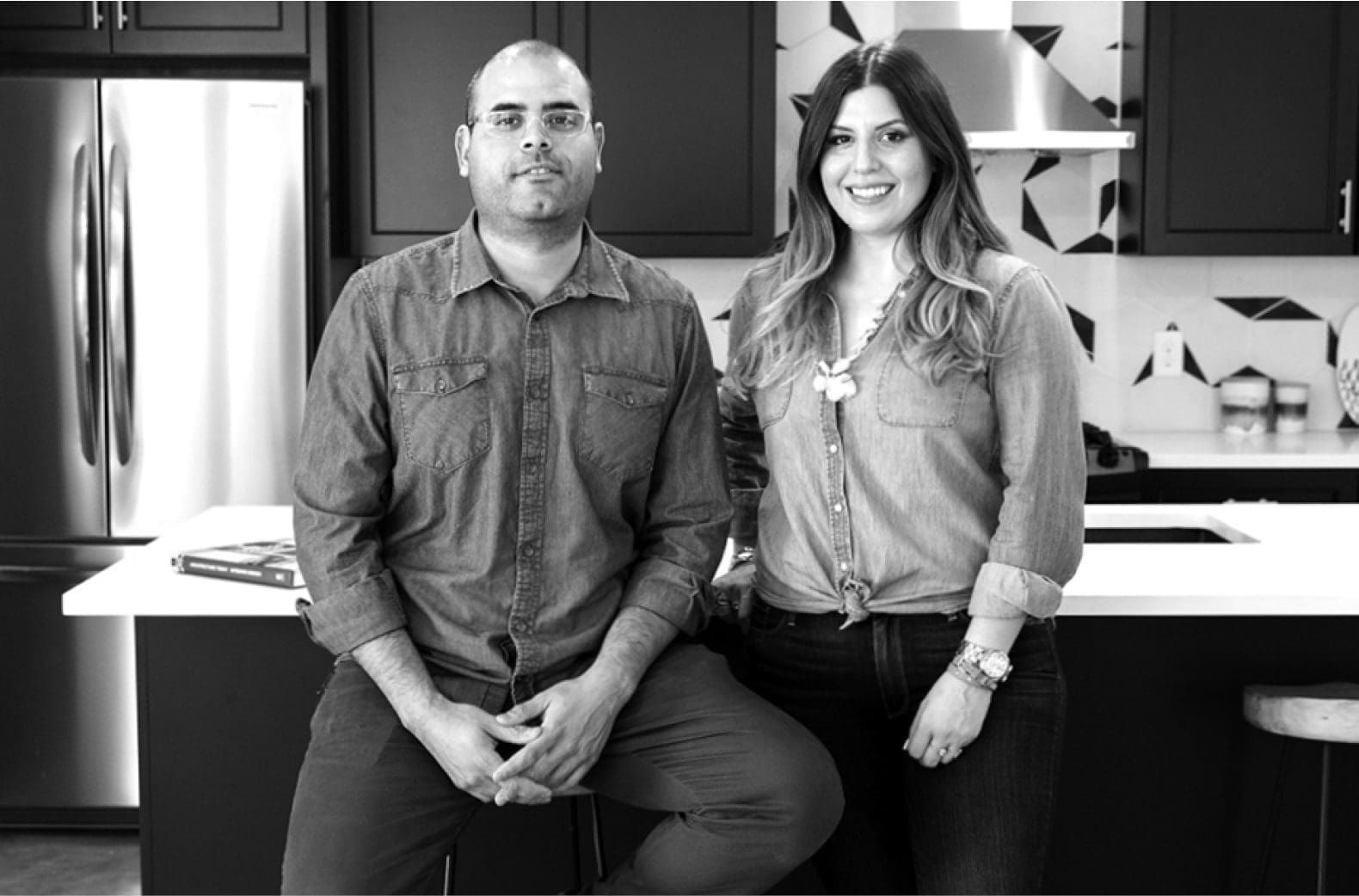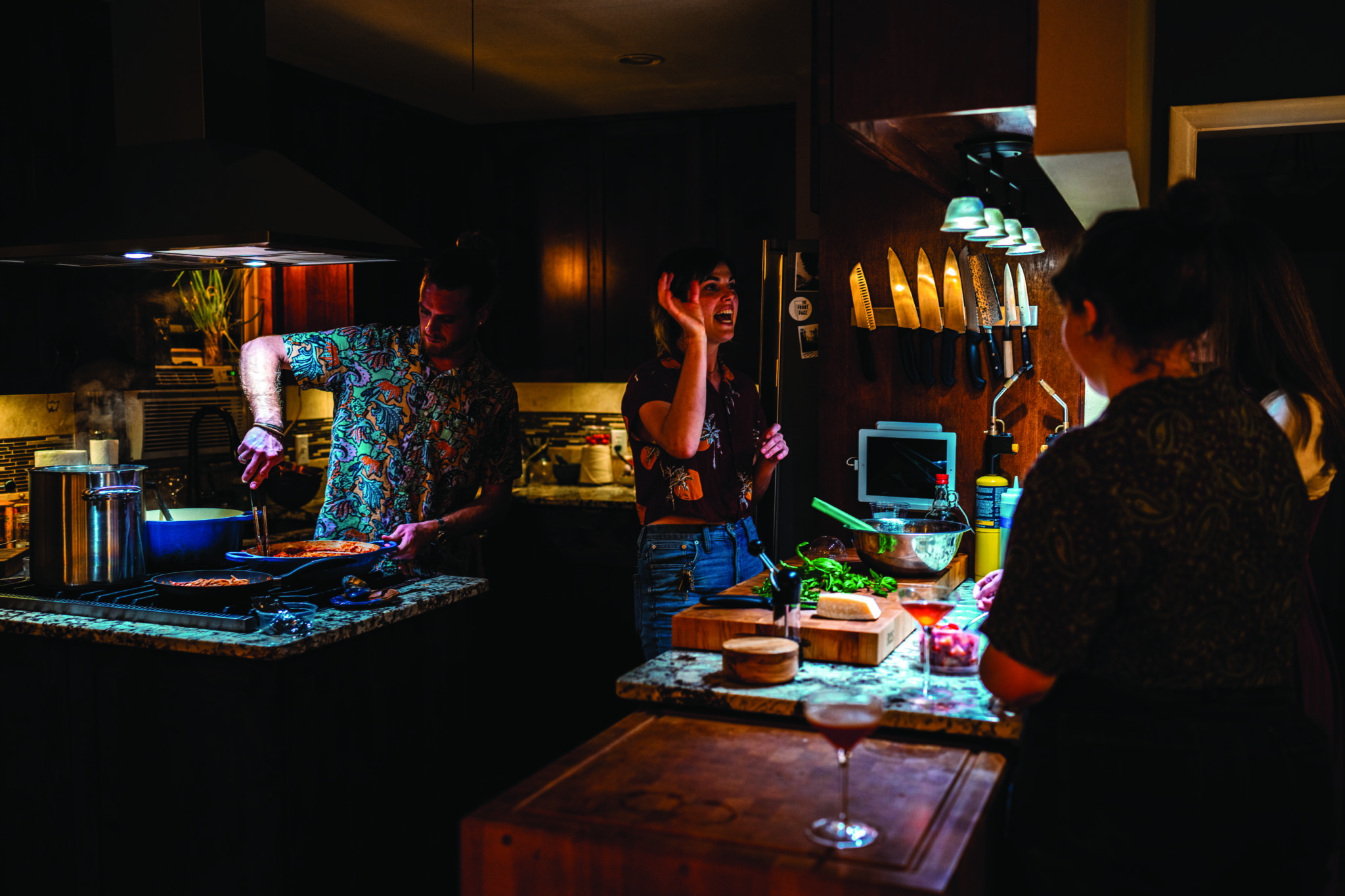Finding a Better Kind of Happiness

A healthy perspective is often the answer.
Words by Jessi Devenyns Photos by Ashley Haguewood
Look up the denotation of the word ‘happy.’ The word is derived from the Middle English word for chance or fortune – think ‘haphazard,’ ‘happenstance,’ and ‘perhaps’ – and it conjures the idea that whatever happiness is, it is something that just happens.
However, it seems that happiness is something more than just by chance. It is a conscious effort that one cultivates. It is something that can be learned from body awareness to asking for advice to even putting oneself in the hands of a higher deity. For those who have found happiness, they’ve discovered it through discarding their view of their world as isolated individuals and connecting by asking for guidance through their relationships with others.
Although there is no qualification to become an expert on happiness, a generally accepted list of personal qualifications include a smile, and Eric Morales, Archie Kelly, and Eli Halpin are always found with the corners of their mouths turned upward. Beyond that, each of these three Eastsiders have a different story. One is an artist, one is a martial arts instructor, and one is a crossing guard, but each possesses the emotional capacity to overcome life’s challenges and find the beauty in the everyday. Despite sounding mundane, according to each of them, discovering this beauty and sharing it with others is the key to unlocking the secret to happiness.
Archie Kelly, a 69 year old crossing guard at Maplewood Elementary, knows that life can be a trial, but he shares that he found happiness by consistently asking for God’s guidance on how to connect with others. Each day, Archie asks for direction to “enable [me] to encourage each and every person that comes across [my] path with the exact words that they need to make them better.” Connection has helped him find love, which for him is the key component to leading a happy life. Archie explains, “Love is the key ingredient to letting people know who you really are.”
For Eli Halpin, a local artist, love is also paramount. But for her, love is not so much about oneself as it is an action taken on the behalf of others to demonstrate affection. Treating love as a verb, she observes, has led her to become more conscious of her actions, including those that lead toward happiness. Eli shares that this perspective was necessary as she treaded the path of becoming an artist. From auditing art classes and working as a waitress as she sold her work that was hanging in Portland coffee shops, to now owning a wildly successful gallery at Springdale General, Eli explains that her success, and the happiness that came with its stability, stemmed from her willingness to give. For years, Eli explains that she strove to be a ray of sunshine for those who crossed her path by sharing her love of color, the smell of painting studios, and her enthrallment with animals.
However, living by the golden rule had its own pitfalls. To compensate for the uncertain ups and downs of an artist’s life, Eli explains that she felt obliged to be unfailingly happy for everyone all the time. Over time, she admits that this impulse tempered itself as her business began to fluctuate less sharply, and her idea of happiness also became more peaceful and balanced. “I think I’m just starting to become happy really,” she admits. And for her, contentment starts with acknowledging the simple pleasures like a “reliable meal ticket” and the ability to relax into the moment: “in my PJs, with my cat and my husband, doing absolutely nothing.”
Indeed, happiness is a state that is learned from experience and observation: both of your own reactions and those of others. “Everyone you run into is teaching you something,” explains Eric Morales, a Kuk Sool Won instructor and photographer. Whether it’s someone driving down I-35 raging at the car in front of them or the meditated voice of a martial arts instructor, Eric clarifies that everyone’s reactions are worth observation because chances are they’re not unique. By observing others, it is an opportunity to evaluate self-reactions because, according to him, “there is no division between the outside world and my inside.” Everything is merely a different perspective of the present moment.
Living in the present, Archie explains that it helps focus his perspective on the good moments in life which are where he finds the connection to others that gives life meaning. To underscore the power of perspective, he recounts his time as a facilities manager at Camp Mabry when he had to be at work at 4 o’clock in the morning but was struggling with recovery from triple bypass heart surgery and colon cancer. Still, he says that he never missed a day of work unless the doctor required it. “I just love doing what I do,” he explains. By arriving every day at work, he finds fulfillment not just through completing his laundry list of activities but also by being able to touch individual souls through conversation that he hopes generates a spark of inspiration.
Eric similarly cultivates inspiration for himself and others through living presently. He shares that the ideal way to be present is to follow the path of least resistance because that is how one stumbles upon daily experiences that are joyful and fulfilling.
By seeking out moments that bring joy, both Eric and Archie share stories of strangers gravitating toward them. “It’s because people observe you and watch you; they see the type of person you are,” adds Archie.
Such a magnetic person, according to Eli, is not cultivated over the course of a day, a week, or even a year. She explains that satisfaction and contentment are a lifelong process that involve grappling with the balance between the best and the worst parts of life. “Generally the process is always happening because it’s my whole life,” she says. “It’s so important to be conscious of when you’re happy so you can hold on to it, grow it, practice it, and build that muscle. But also if you’re being negative, it is so helpful just to notice so you can harness [negativity] too and have control over it,” she explains.
It seems happiness is something more that an emotion that just happens. It’s derived through connection and learned through asking for guidance, whether it’s from the local crossing guard, a revered deity, or a trusted friend. Continuing to grow and learn is when the body will rest in a healthy equilibrium that we call happiness.
“If any of us can remain in a state of learning, then that’s when life is really beautiful,” Eric emphasizes. “That’s what I’m learning, that’s what I’m discovering, and that’s part of what helps me to enjoy it all: the good, the bad, and the ugly.”
Contact:
ericmorales.com
elihalpin.com










